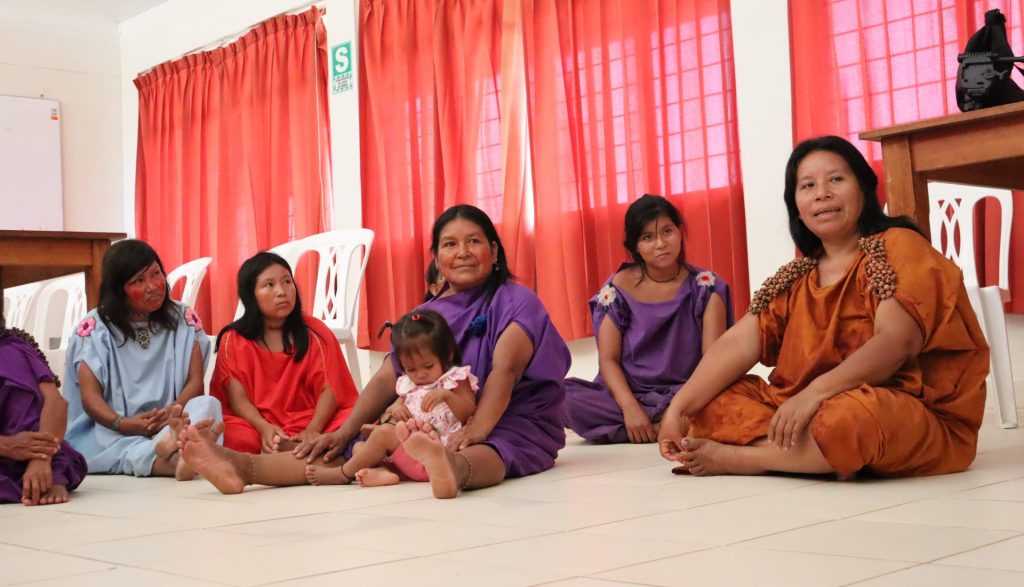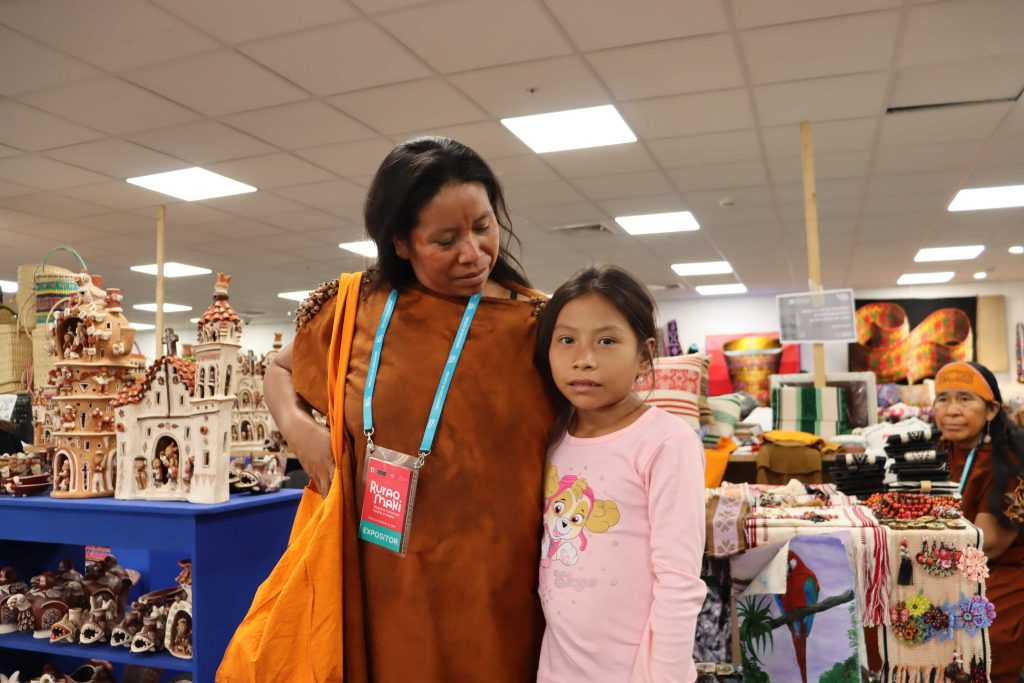Rainforest Weavers
In the Indigenous community of Cutivereni, Peru, a group of women have come together to keep traditional artisanal crafts alive. They are known as Jeto and are made up of 18 Indigenous Asháninka mothers. From the depths of the rainforest, they use fibres and dyes taken from nature to create their crafts.


Women from the Asháninka community
“Jeto means ‘spider’. My grandparents say that the spider is the one who taught the Asháninka to spin and weave. Our ancestors left us these designs so that we can maintain our traditions and provide for our families,” says Chabuca, the president of the artisans.
Today, Chabuca welcomed us from the headquarters of the Ministry of Culture, where more than 500 kilometres away from her community, the “Ruraq Maki” trade fair is taking place. This event brought together hundreds of traditional craft makers in Lima (Peru) to promote their art. Thanks to the support of Cool Earth, the women of Jeto have been able to showcase their weavings, allowing more people to learn about and enjoy the Asháninka traditions.
“Since 2016, we have been working with the Asháninka women artisans of the Cutivireni Community through training programs. This year, we are collaborating on a project together, focusing on strengthening their skills in quality, the use of sewing machines, and transforming looms into products such as backpacks, handbags, etc.” explains Deylar Capaquia, project coordinator.
Thanks to this work, the women of the Asháninka community not only have the opportunity to preserve their culture but also to improve their families’ livelihoods. Chabuca, a mother of four children, and her youngest daughter, Shimashiri, eight years old, enjoy weaving and learning together. “She helps me spin and organise the threads. She wants to learn to weave her own ‘sarato’ (bag). During the training sessions, she pays attention well.”


Chabuca and Shimashiri
“We didn’t know how to use sewing machines, and that’s something we’ve learned in the training sessions provided by Cool Earth. We’re just getting started. We have seen the Nomachiguenga sisters at the fair producing holsters, backpacks, and we also want to learn. We want to continue growing and have all the mums and ladies of Jeto come to exhibit their products.”
Deylar tells us that, thanks to the training and their participation in events like this, they are becoming increasingly excited about learning. “Through the provision of equipment, such as winding machines and scales, as well as the improvement of the artisan house they work in within the community, we hope that they will soon take the next step and form an association.”
Thanks to the support of donors who believe in projects with a vision focused on local development to protect the tropical forest and its inhabitants, success stories like this are possible.
We’ll be back with more updates about our artisan sisters from Jeto.
